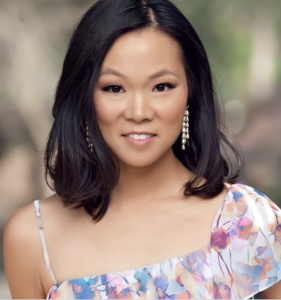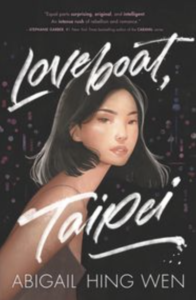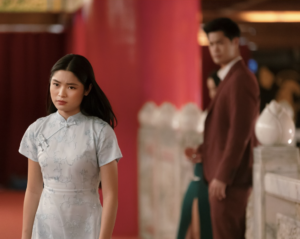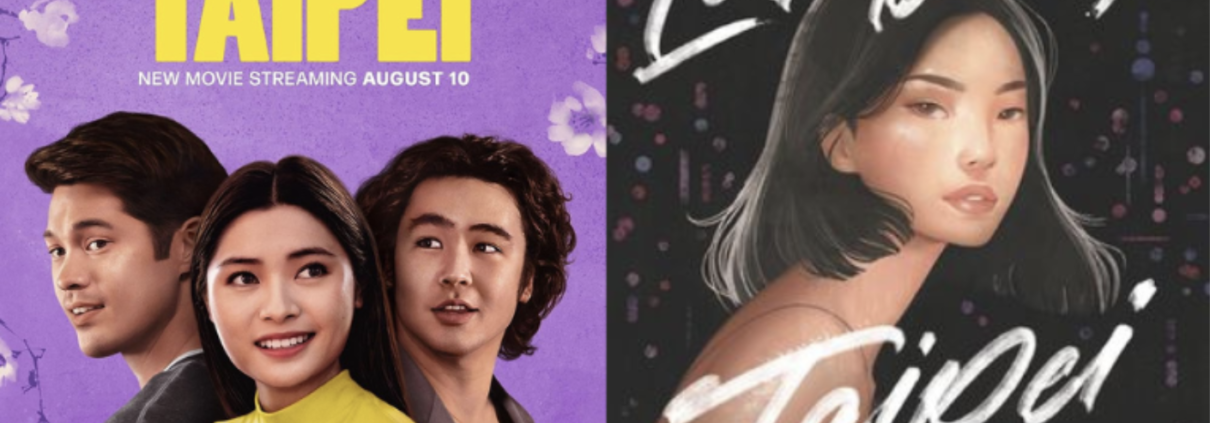From Page to Screen: Abigail Hing Wen on Love in Taipei
Many writers (if not all writers at one time or another) secretly dream of having a book become a bestseller. In reality, only a handful of books of the thousands published each year become bestsellers. For your book to land on the New York Times Bestseller List, you have to sell around 10,000 copies, usually within the first week. From that narrow category, the odds of having a book optioned for film (and actually getting made into a film or series rather than sitting forever on a shelf somewhere) are even more astronomical. But after the publication of her first book, Loveboat, Taipei, VCFA WCYA alum and former GA Abigail Hing Wen found herself in just this enviable position. Loveboat, Taipei, a young adult romance featuring an all-Asian-American cast, became an instant international bestseller, was optioned for film, and while the book(s!) are available now wherever books are sold (in several formats and languages) Loveboat, Taipei was also adapted to film and can now be streamed online under the title Love In Taipei. We got the opportunity to interview Abigail about the process from book to bestseller to film–and what’s next!
1. Congratulations on the massive success of “Loveboat, Taipei”! Could you share the initial inspiration behind the story and how it feels to see it become a bestseller?

Loveboat is an actual program in Taipei! Similar to Birthright in Israel and other cultural programs, where youth get to visit the land of their ancestors.
I attended Loveboat the summer after my freshman year of Harvard. When I first received my invitation, I thought I was going to Taipei to learn about the culture and language, but there was so much more to it – as you can see in the book and film than just language and culture. All of the experiences I had during my trip like sneaking out, clubbing, dancing and taking glamour shots are all core memories I will never forget. The story has been inside me for years, and after going through the VCFA program, and burying four novels along the way, I finally felt ready to write it.
In Loveboat, Taipei, 18-year-old Ever Wong is set by her parents from Ohio to Taipei for the same reasons I went. But instead, she finds herself on a journey of self-discovery, learning how to pursue her passion for dance (for me, writing), while honoring her family, who wants something very different for her.
Seeing “Loveboat, Taipei” become a bestseller was unbelievable! At that point I’ve been writing for 10 years and received one rejection after another, setting aside, as I mentioned four novels, two of which had come close but couldn’t get through marketing. I’m grateful to the community, who really helped to get out word on Loveboat, Taipei. Some of my VCFA classmates even hand-sold copies at their local Barnes & Noble and indie bookstores. Cynthia Leitich Smith featured me on her Cynsations blog. We would not be here today without all of you.
2. Young adult romance novels have a dedicated fan base. What unique elements do you think contributed to the widespread appeal of “Loveboat, Taipei” among readers of all ages?
With a cast of over 30 Asian/Asian American characters, being Asian American was no longer their defining, most interesting characteristic. And so they could just be themselves — friends, sisters, daughters, lovers, and above all, flawed and deeply human. At the same time, we could discover what was uniquely Asian American about the community — the centrality of family and food, for example. Which I think readers of all backgrounds enjoyed! The themes of self-discovery, parental pressures, and pursuing your passions are also relatable across many cultures.
3. Your educational background includes an MFA in Writing for Children and Young Adults from Vermont College of Fine Arts. How did your academic experience shape the way you approached writing “Loveboat, Taipei,” particularly in terms of crafting relatable characters and themes?
Vermont College of Fine Arts was a game changer for me. I learned so many valuable lessons from my brilliant teachers, A.M. Jenkins, Alan Cumyn, Kathi Appelt and Martine Leavitt, as well as in workshops with Will Alexander, Rita Willams Garcia, Varian Johnson (who was my first intro to VCFA!) and so many others.
I’ll highlight one key lesson from Amanda Jenkins in particular — she taught me how to find the emotional core of every scene — and every story. Before studying with her, I used to plot based on events — exciting ones! Bigger! Better! I now plot according to the emotional arc. That’s helped me craft stories that explore the depths of each character, which in turn, I think, helps readers relate.
 4. “Loveboat, Taipei” touches on cultural identity, family expectations, and personal dreams. How did you balance these complex themes while maintaining the engaging pace of a young adult romance novel?
4. “Loveboat, Taipei” touches on cultural identity, family expectations, and personal dreams. How did you balance these complex themes while maintaining the engaging pace of a young adult romance novel?
My novels are actually unusually long for YA contemporary. Each of them is over 90K words, which is closer to a fantasy novel. In fact, I think of Loveboat, Taipei as a fantasy novel, which is my first love: A girl goes into another world, experiences a new culture with new people and new rules, and comes home transformed. I think the space to build out the universe helped with reader engagement and the sense of immersion. As for pacing, it goes back to plotting along the emotional arc — every plot movement has to move the emotional story along, which then allows both the internal and external journeys to work together for double the impact.
5. The book’s protagonist, Ever Wong, undergoes a transformative journey. How do you think her growth resonates with readers, and what elements of her character do you believe were key to making her story so compelling?
Ever’s growth throughout the novel is a similar journey many go through during that transition between high school and university. She has to make that hard decision of choosing a path you “have to” follow — for Ever it’s honoring her parents’ decisions — versus pursuing her own passion. It’s so tough and I think readers can empathize and related to her thoughts and emotions along the way.
6. Becoming a bestselling author is a significant achievement. How has your life changed since the success of “Loveboat, Taipei,” and have there been any unexpected or particularly heartwarming interactions with readers that stood out to you?
I have been so honored to hear how many of my readers say they feel seen. I’m so glad that I was able to bring alive Asian American characters that can do anything and be anything. As far as my life being changed, I think becoming a bestseller has pushed me to continue my writing and now producing journey and not give up. Like Ever, I am grateful I get to keep doing what I love!
7. Adapting a novel into another medium, such as film, can be both exciting and challenging. How do you feel about “Loveboat, Taipei” being adapted into the recently released film “Love in Taipei,” and how involved have you been in the adaptation process?
I’m thrilled that readers can see the characters and Taipei come to life on screen, with the rest of the story continuing in the three novels: Loveboat, Taipei, Loveboat Reunion and Loveboat Forever, which follows the whole gang six years later.
Condensing a 400-page novel into a 100-page script was definitely the biggest challenge, but fortunately our screenwriter, Charlie Oh, was incredible at condensing the story and character introductions. For example, in the novel Ever connects with a dance teacher in Taipei who becomes a mentor, but in the film, that character is Ever’s Auntie Shu, who does double duty for the story by helping Ever stay connected to her family.
I worked on set through the entire filming in Taipei, which was a magical time. We filmed during COVID while Taipei was closed to the world, so everyone became very close. It was almost like our own Loveboat. I also did make a cameo in the film!
 8. The transition from page to screen often involves changes to the story and characters. Were there any specific aspects of the book that you were particularly keen to see translated faithfully into the film adaptation?
8. The transition from page to screen often involves changes to the story and characters. Were there any specific aspects of the book that you were particularly keen to see translated faithfully into the film adaptation?
It was really important to me that the characters were true to who they were. I wanted the characters on screen to be themselves at their core, and our screenwriter, Charlie Oh, did a great job of doing that as well as the actors, who played each role so perfectly.
9. The title change from “Loveboat Taipei” to “Love in Taipei” for the film adaptation might indicate some shifts in emphasis. Could you tell us if there are any new elements or perspectives that the movie will bring to the story?
The title change was a choice by Paramount+ as it’s a bigger title that’s relatable to international audiences, who may be less familiar with Loveboat than Americans and Canadians. While publishers and authors always prefer the title to be the same, in this case, I think it was a good choice. Some of my foreign translations are also Love in Taipei (Hungarian) and the Brazil translation is actually Vacation in Taipei and Return to Taipei (book 2).
The film does a fantastic job of portraying the beauty of Taipei and the kinetic energy of dancing. Those visuals can’t be fully captured by words alone!
10. As readers head to Paramount+ to watch “Love in Taipei” (with a subscription, currently!) what do you hope both longtime fans of the book and new audiences take away from this cinematic interpretation of your novel?
That their power comes from being fully themselves, and that they too can be the main characters of their own stories.
The Loveboat series can be found wherever books are sold. And stay tuned for Abigail’s next young adult romance, Kisses, Codes and Conspiracies, coming in 2024!
Learn more about Abigail at AbigailHingWen.com!



